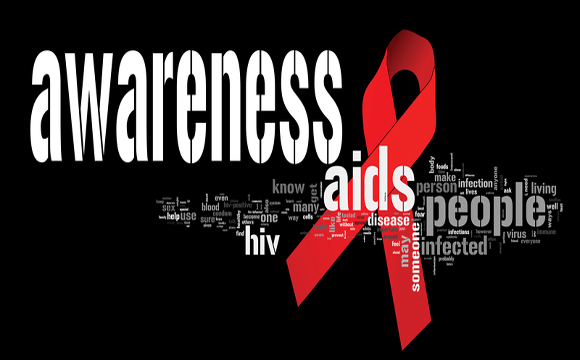How can we dispel the myths about HIV and STDs?

Someone once said, “It is better to ask a stupid question than to make a stupid mistake.” Before the National Basketball Association player Earvin “Magic” Johnson Jr. pronounced in 1991 that he had contracted the Human Immunodeficiency Virus (HIV), there appeared to be a lot of misconceptions on who could contract HIV. During this time, Johnson’s teammates and opponents even voiced their concerns about being at risk of contracting HIV if Johnson suffered an open wound while on the basketball court. This, coupled with the misinformation of HIV, forced Magic Johnson to retire.
In recognition of the National Black HIV/AIDS Day, the critical questions to be asked are: How can we dispel the myths about HIV and sexually transmitted diseases (STDs)? What are the statistics regarding HIV and STDs? Who are the victims? What are appropriate methods for prevention? Are there any programs to raise the awareness of HIV and STDs in the African-American community? What advice does Dr. Stephanie D. Sweet give to students regarding HIV and STDs?
During a 2012 National Save the Family Now Movement Inc. and National Newspapers Publishers Association Conference in Orlando, Fla. I interviewed Dr. Stephanie D. Sweet, an obstetrics and gynecology physician to gain responses to these questions. Sweet is an advocate for education and families in the African-American community and says that the most effective ways to dispel the myths about HIV and STDs are through conversation, compassion and consideration. Conversation brings accurate information to those who are concerned about the diseases, as well as produces fears and social mores the community has to the surface to better assess where misinformation lies.
Compassion is essential because individuals who become infected with HIV and STDs can be more devastated than individuals who have not become infected with the diseases. Compassion is an important tool in healing individuals, as well as those that are in their families and social circles. Consideration is paramount for everyone in the African-American families. It plays a vital role in supplanting the myths through education, says Sweet.
U.S. statistics show that HIV and other STDs such as Chlamydia and Gonorrhea have the highest prevalence in the African-American community. Sweet says that over 60 percent of all new cases of HIV are in African-American women; however, the highest prevalence of HIV in the U.S. is in African-American men who have sex with other men.
Sweet cautions that our community has to realize that no person is exempt from HIV and STDs. This includes children, women, men, grandmothers and grandfathers, the homeless, the mentally ill and those with decreased access to medical care. In fact, she says that everyone in the affected person’s circle is impacted by the illness.
While anti-retroviral therapy (ART) is used often to keep the immune system stronger for an extended period of time and, subsequently, save or improve the lives of individuals who have contracted HIV, Sweets says that abstinence is the only true preventive technique. The other alternative is for partners who have sex with only one another and never have additional partners before or after they initiate intercourse. Condoms can be helpful in the prevention of the transmission of bodily fluids and, therefore, some STDs. However, it will not protect individuals from many skin related transfers like human papillomavirus (HPV), herpes simplex virus, molluscum contagiosum and syphilis, says Sweet.
Because of the HIV and STD epidemic, in 2004 Sweet developed a program called “SEXPOSURE” to raise the awareness in the African-American community about the prevalence of the diseases along with prevention strategies. Sweet says that she used current events, music and culturally sensitive methods to capture the attention of various audiences ranging from church groups to the National Football League.
Sweet’s advice for students regarding HIV and STDs is that they think and wait. She says that they should think about the life they are planning for themselves and how contracting STDs, which sometimes may not be curable, will impact them. Quite a few of the STDs that women contract can be cured but also can damage their bodies permanently leading to pain, infertility and emotional and psychological consequences. Waiting gives students the opportunity to determine if the person they are enamored with will remain consistent in their walk and talk and become deserving of their trust, says Sweet.
Entertainers have a way of bringing attention to societal issues in our world. This was evident in Magic Johnson’s announcement of contracting HIV, causing a scare in the sporting leagues and the world at large. With accurate information about HIV and STDs, our people can learn provocative ways to prevent these diseases rather than encounter medical, physical and emotional repercussion to themselves and loved ones. When in doubt about something that can impact your livelihood, you should simply ask the question to avoid a “stupid mistake.”
Dr. Ronald Holmes is the author of three books, “Education Questions to be Answered,” “Current Issues and Answers in Education” and “How to Eradicate Hazing.” He is publisher of “The Holmes Education Post,” an education focused Internet newspaper. Holmes is the national superintendent of education for the National Save the Family Now Movement, Inc., a former teacher, school administrator and district superintendent. He can be reached at [email protected].

